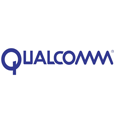 SMS on the wane? Let’s not go over-the-top.
SMS on the wane? Let’s not go over-the-top.
With the advent of smartphones, an interesting dynamic is playing out between SMS and OTT across the telecoms industry. In developed markets, operators are unhappy about the growing dominance of smartphone-based services, but it’s a very different story in emerging markets. Only 1-2% of the population can afford luxury smart devices, so although the demand is certainly there the impact they have on the market is limited.
The subscriber experience and indeed subscriber behaviour has evolved significantly over the last ten years, but the majority of users in emerging markets are still accessing services via WAP browsers on feature phones.
Louise O’Sullivan, founder of messaging specialists Anam Technologies, observes: “It would have been easy for us to say that there was no life in SMS going forward, but this didn’t reflect market feedback in terms of what operators were seeing from their subscribers. Even though the headline information suggests that OTT has completely dominated and is consuming ‘chat app’ activities, the data doesn’t stack up to support this.”
There is a lot of hype around OTT but the evidence does indeed suggest that it will not – or cannot – replace SMS. OTT is a closed user group chat application, while SMS functions as a P2P chat application but has a plethora of other functions. This is the angle which is of particular interest to operators, particularly in emerging markets: they can offer a lot more by using SMS as a bearer.
The beauty of SMS is that it can access any device on any network in any country – it doesn’t have to be a fellow app user who happens to be connected at that particular moment. In this sense, it’s not fair to compare OTT to SMS as they have completely different functionality; OTT will definitely grow, but this does not have to mean the death of SMS.
Mike Grant, CMO at messaging and USSD provider Myriad, notes: “SMS is an unsophisticated messaging service and consumers aspire to more engaging services such as OTT, but the reality is that in emerging markets, customers that have access to such services represent only a tiny section of the addressable user base.”
While it won’t happen overnight, smartphone penetration is definitely on the rise in emerging markets. There are massive swathes of the population that won’t have the same level of access as a customer in a built-up, metropolitan area, so services need to provide reliability of communication – that essentially obliges operators to continue investing in SMS, as O’Sullivan remarks: “I believe they will have to keep investing in SMS from a P2P point of view, certainly for the next five to ten years.”
Widespread adoption of OTT services is still a way off in emerging markets as there are insufficient numbers of compatible devices. In addition, operators are courting customers who don’t have the disposable income to spend on airtime with generous bundles, offering a substantial amount of SMS for a low price in order to spur customer loyalty.
“SMS will certainly continue to have relevance in the telecoms space for many years to come, largely due to its affordability and ubiquity. Everybody’s phone has SMS capabilities – voice and SMS are the guaranteed methods of reaching someone”, adds Grant.
It’s easy to claim that OTT is already making SMS obsolete, but there are plenty of people who are reliant on services that operate via SMS with no OTT alternative. O’Sullivan notes that there are many instances of SMS services being provided to women in emerging markets that focus on health issues as well as basic communication, and observes how empowering this can be.
In seven years or so, SMS will be more hidden but still used as a bearer. This means that operators will have to continue investing in the infrastructure. It will be used in different ways; as a device trigger in the M2M space, for example. In this scenario, data is used to transfer information between devices but rather than having the data connection constantly active, it can be triggered by SMS. This avoids the need for the airwaves to be constantly active.
The technology is definitely there, but it requires operators to coordinate with a number of other functions. It will take a while for demand to pick up, but once the initial services have gained ground it will likely spur greater demand. There are a lot of potential human benefit applications in the M2M space, particularly in the developing world. If the correct pieces slot into place, there is a very good offering there but operators and systems integrators will have to drive this.
The value of SMS comes from the number of connections that it’s possible to make on a network. The probability of one user reaching a friend via SMS is 100%, whereas the probability of reaching a WhatsApp subscriber in a market such as South Africa is probably less than 10%. SMS is a very reliable way of connecting to people, and will continue to be for a long time to come. Smartphone users with data connectivity simply aren’t widespread enough in emerging markets for OTT services to gain anywhere near enough traction to replace SMS.
03 Jun 2013
by admin-4ga
About the Author
Social Share
THE 4G AFRICAN BROADBAND FORUM Welcomes You to the world of 4G Wireless in Africa
The 4G African Broadband Forum serves you to do better business in Africa. Our services to you include:
* Promoting your Events
* Research and Analysis of Your Marketplace
* Business Development - specific and targeted
* Expert Witness - to your regulator and courts
* Invite you and your teams to significant meetings and symposiums in your market place
* Mergers and Acquisitions with empowerment transactions for disadvantaged groups - consulting therein
LINKS
HOME | AFRICA OPERATORS | NEWS | EVENTS | WHITE PAPERS | ASSOCIATES | CONTACT US | MEMBERS
Copyright © 4G African Broadband Forum 2015 | Developed by Milcheff.com
Copyright © 4G African Broadband Forum 2015 | Developed by Milcheff.com









